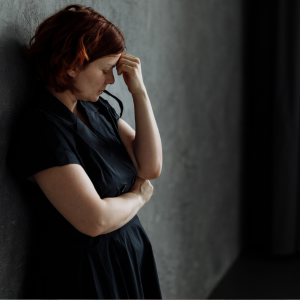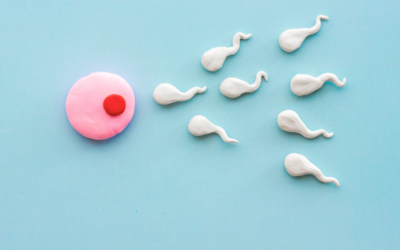Bringing a new baby into the world is a life-changing and joyful experience, but it can also come with unexpected emotional challenges. Many new mothers experience mood swings or the “baby blues” in the first couple of weeks, which usually fade on their own. However, for some women, these feelings persist or intensify, signaling something more serious—postpartum depression.
Understanding postpartum depression symptoms is crucial for every new mom. Recognizing the warning signs early can help you seek support, protect your emotional well-being, and maintain a healthy bond with your baby. Postpartum depression is common, affecting millions of mothers worldwide, yet it is often overlooked or misunderstood.
In this guide, we’ve compiled 12 key warning signs that every new mom should know. From persistent sadness and anxiety to trouble bonding with your baby, these symptoms can appear in many forms. Being aware of them not only helps you identify postpartum depression early but also empowers you to take proactive steps toward recovery and support.
Whether you’re experiencing some of these symptoms yourself or want to help a loved one, this article will provide clear, compassionate guidance to navigate this challenging but treatable condition.

Table of Contents
1. Persistent Sadness or Tearfulness
Feeling sad after childbirth is common, but when the sadness persists for more than two weeks, it could be a sign of postpartum depression. Many new mothers experience emotional ups and downs during the early weeks, often called the “baby blues,” which usually fade on their own. However, persistent sadness, tearfulness, or a feeling of emptiness may indicate something more serious.
Signs to watch for include:
- Frequent crying without a clear reason
- Feeling hopeless, overwhelmed, or emotionally drained
- Emotional heaviness that affects daily tasks
- Loss of interest in once enjoyable activities
These ongoing emotional lows are among the most recognizable postpartum depression symptoms. They can interfere with your ability to care for yourself and your baby, and may affect your overall quality of life.
What you can do:
- Talk to a healthcare provider or mental health professional about your feelings
- Share your emotions with a trusted friend or family member
- Prioritize rest, nutrition, and small self-care routines
Recognizing these warning signs early and seeking support can significantly improve your emotional balance, strengthen your bond with your baby, and help you navigate the postpartum period with more confidence and ease.

2. Loss of Interest or Pleasure
Many new mothers experience a noticeable decline in enjoyment after childbirth, which can be a sign of postpartum depression. While it’s normal to feel tired or distracted during the postpartum period, losing interest in activities that once brought joy or feeling emotionally disconnected may indicate a deeper issue.
Signs to watch for include:
- Avoiding hobbies, social interactions, or activities you once enjoyed
- Feeling numb, detached, or emotionally flat
- Lack of motivation to care for yourself, your home, or your baby
- Reduced enjoyment even during special moments with your newborn
This diminished pleasure is one of the key postpartum depression symptoms and can affect your overall quality of life. It’s important to recognize that this is not a personal failure—postpartum depression is a medical condition that requires attention and support.
What can help:
- Start with small, manageable activities each day, like a short walk or reading for a few minutes
- Connect with supportive friends or family members, even briefly
- Speak with a healthcare professional or mental health provider for guidance
Acknowledging this symptom and taking proactive steps can improve mood, strengthen your bond with your baby, and support your overall emotional well-being.
3. Changes in Appetite
Significant changes in appetite after childbirth can be an important indicator of postpartum depression. While some fluctuation in eating habits is normal due to hormonal changes or fatigue, persistent overeating or loss of appetite may signal an underlying emotional concern.
Signs to watch for include:
- Eating much more or much less than usual
- Skipping meals regularly or engaging in binge eating
- Craving unhealthy foods or avoiding nutritious meals
- Feeling no hunger or disinterest in food
These shifts in appetite are common postpartum depression symptoms and can affect both physical and emotional well-being. Poor nutrition can worsen fatigue, mood swings, and energy levels, making daily tasks and caring for your newborn more challenging.
What can help:
- Aim for balanced meals even in small portions
- Keep healthy snacks readily available to avoid skipping meals
- Seek support from a nutritionist or healthcare provider if appetite changes persist
- Track eating habits to recognize patterns and triggers
Addressing appetite changes early can improve your overall health and help stabilize mood. Understanding these postpartum depression symptoms ensures timely care, which can significantly enhance your postpartum recovery and support your connection with your baby.
4. Sleep Disturbances
Sleep challenges are common for new mothers, but persistent problems with rest can be a sign of postpartum depression. While newborn care naturally disrupts sleep, ongoing insomnia or excessive sleepiness unrelated to caring for your baby may indicate emotional distress.
Signs to watch for include:
- Difficulty falling asleep or staying asleep, even when the baby is resting
- Sleeping too much yet still feeling exhausted
- Feeling unrested or fatigued despite opportunities for rest
- Nighttime anxiety or racing thoughts are preventing sleep
Sleep disturbances are one of the most common postpartum depression symptoms and can significantly impact mood, energy levels, and overall ability to manage daily tasks. Lack of restorative sleep may also intensify other symptoms, such as irritability or difficulty concentrating.
What can help:
- Create a consistent sleep routine whenever possible
- Ask for help from a partner, family member, or friend to allow uninterrupted rest
- Practice relaxation techniques before bed, such as deep breathing or gentle stretching
- Speak with a healthcare professional if sleep issues persist
Addressing sleep problems early can improve emotional stability, enhance energy levels, and support your ability to care for yourself and your baby. Recognizing these postpartum depression symptoms is crucial for early intervention and recovery.
5. Anxiety or Panic Attacks
Excessive worry, nervousness, or sudden panic can be a key sign of postpartum depression. While some anxiety is normal for new mothers, persistent or intense feelings of fear or dread may indicate an underlying mood disorder.
Signs to watch for include:
- Constant worry about your baby’s safety or health
- Feeling tense, on edge, or unable to relax
- Racing thoughts that are hard to control
- Panic attacks, including shortness of breath, rapid heartbeat, or dizziness
These emotional experiences are common postpartum depression symptoms and can interfere with daily life, sleep, and the ability to bond with your newborn. High anxiety levels should never be ignored, as they can escalate if left untreated.
What can help:
- Talk to a healthcare provider or mental health professional about your symptoms
- Practice calming techniques, such as deep breathing, meditation, or mindfulness exercises
- Accept help from family or friends for childcare or household tasks
- Join a support group for new mothers experiencing anxiety
Recognizing anxiety or panic attacks as postpartum depression symptoms is an important step toward healing. Early support and intervention can help restore emotional balance, reduce stress, and improve your overall well-being while navigating the postpartum period.

6. Irritability or Anger
While mood swings are common after childbirth, frequent irritability or anger can be a warning sign of postpartum depression. Feeling constantly frustrated or easily annoyed may affect your relationships, daily life, and your ability to care for your baby.
Signs to watch for include:
- Frequent outbursts of anger over minor issues
- Feeling unusually impatient or frustrated with yourself or others
- Difficulty controlling emotions, even in calm situations
- Feeling tense or restless most of the time
Persistent irritability is a significant postpartum depression symptom. These emotions can interfere with bonding with your baby and create additional stress in family life. Recognizing these patterns early can help you take steps toward emotional recovery.
What can help:
- Share your feelings with a trusted friend, partner, or family member
- Practice stress-reduction techniques such as deep breathing, yoga, or mindfulness
- Schedule breaks for self-care, even for short periods during the day
- Seek support from a healthcare professional or counselor experienced in postpartum mental health
Acknowledging irritability and anger as postpartum depression symptoms allows you to seek help without guilt. Early support can improve emotional regulation, strengthen relationships, and create a healthier environment for both mother and baby.
7. Difficulty Bonding with Baby
Struggling to connect emotionally with your newborn can be one of the most concerning signs of postpartum depression. While some mothers may feel nervous or unsure initially, ongoing detachment or lack of emotional response may indicate an underlying mood disorder.
Signs to watch for include:
- Feeling indifferent or emotionally distant from your baby
- Difficulty feeling love, joy, or connection during daily care
- Avoiding holding, cuddling, or interacting with your baby
- Feeling disconnected even during special moments or milestones
Difficulty bonding is a key postpartum depression symptom. It can affect both the mother’s emotional well-being and the baby’s development, making early recognition and intervention essential.
What can help:
- Spend short, intentional periods each day focusing on gentle interaction with your baby
- Accept help from supportive friends or family to reduce stress and fatigue
- Discuss your feelings with a healthcare professional or counselor
- Join parent support groups to share experiences and coping strategies
Recognizing difficulty bonding as a postpartum depression symptom allows mothers to seek help without shame. With professional support, consistent self-care, and small, nurturing interactions, emotional connection with your baby can strengthen over time, improving both maternal and infant well-being.
8. Feelings of Guilt or Worthlessness
Many new mothers experience guilt or self-blame after childbirth, but overwhelming or persistent feelings may signal postpartum depression. These emotions can interfere with your ability to care for yourself and your baby, and may intensify other symptoms of depression.
Signs to watch for include:
- Feeling like you’re a “bad” mother or failing at parenting
- Blaming yourself for minor mistakes or things beyond your control
- Feeling undeserving of help, care, or love
- Persistent thoughts of inadequacy or shame
These emotional patterns are key postpartum depression symptoms. They are not a reflection of your abilities or love for your baby, but rather a sign that support and treatment may be necessary. Ignoring these feelings can prolong distress and affect your overall well-being.
What can help:
- Talk openly with a trusted friend, partner, or family member about your emotions
- Seek professional guidance from a healthcare provider or counselor experienced in postpartum mental health
- Practice self-compassion by acknowledging your efforts and celebrating small successes
- Join support groups for new mothers to share experiences and reduce feelings of isolation
Acknowledging guilt or worthlessness as postpartum depression symptoms is an important step toward recovery. With support, therapy, and self-care, these feelings can gradually diminish, allowing you to regain confidence and emotional balance.
9. Trouble Concentrating
Difficulty focusing, remembering details, or making decisions can be a subtle but significant sign of postpartum depression. While fatigue and the demands of caring for a newborn can affect attention, ongoing cognitive challenges may indicate underlying emotional distress.
Signs to watch for include:
- Forgetfulness, even with routine tasks
- Trouble making decisions, both big and small
- Difficulty concentrating on work, reading, or daily chores
- Feeling mentally “foggy” or distracted most of the time
These cognitive challenges are important postpartum depression symptoms. They can make everyday responsibilities feel overwhelming, adding stress and affecting your confidence as a parent.
What can help:
- Break tasks into small, manageable steps to reduce overwhelm
- Keep a planner or checklist to track responsibilities
- Take short breaks throughout the day to rest and recharge
- Discuss cognitive struggles with a healthcare professional or counselor
Recognizing trouble concentrating as a postpartum depression symptom allows mothers to seek support early. With professional guidance, structured routines, and self-care, focus and mental clarity can improve, reducing stress and enhancing your ability to care for yourself and your baby.
10. Withdrawal from Loved Ones
Isolation and social withdrawal can be a significant sign of postpartum depression. While some quiet time is normal for new mothers, persistent avoidance of friends, family, or social activities may indicate emotional distress.
Signs to watch for include:
- Avoiding visits, phone calls, or social gatherings
- Cancelling plans with friends or family regularly
- Feeling alone even when surrounded by loved ones
- Reluctance to share feelings or experiences with others
Withdrawal is a common postpartum depression symptom. It can increase feelings of loneliness, reduce support, and worsen other emotional or physical symptoms. Recognizing this early can prevent isolation from compounding your challenges.
What can help:
- Reach out to a trusted friend, family member, or support group for small, manageable social interactions
- Schedule short, structured connections, such as phone calls or brief visits
- Speak openly with a healthcare professional about feelings of isolation
- Engage in online or local support communities for new mothers
Acknowledging withdrawal as a postpartum depression symptom allows you to seek support without guilt. Reconnecting gradually with loved ones and accessing professional guidance can improve emotional well-being, reduce loneliness, and help you feel more capable during the postpartum period.
11. Physical Symptoms Without a Clear Cause
Sometimes, emotional distress manifests as physical complaints, which can be an overlooked sign of postpartum depression. These symptoms often appear without a clear medical explanation and can significantly impact daily life, making recovery more challenging.
Signs to watch for include:
- Persistent headaches or body aches
- Stomach issues such as nausea or digestive discomfort
- Chronic fatigue that isn’t resolved with rest
- Muscle tension or unexplained soreness
These physical issues are common postpartum depression symptoms and may result from hormonal changes, stress, and emotional strain. Ignoring them can worsen mood, energy levels, and overall functioning, making it harder to care for yourself and your baby.
What can help:
- Track physical symptoms to discuss patterns with a healthcare professional
- Practice gentle exercise or stretching to relieve tension
- Prioritize rest, hydration, and balanced nutrition
- Seek support from mental health professionals if physical symptoms persist alongside emotional distress
Recognizing unexplained physical complaints as postpartum depression symptoms ensures timely care. By addressing both emotional and physical health, you can improve energy, reduce discomfort, and enhance overall well-being during the postpartum period.
12. Thoughts of Self-Harm or Harm to Baby
The most serious warning sign of postpartum depression is experiencing thoughts of self-harm or harming your baby. While these thoughts may feel frightening or shameful, they are a symptom of a medical condition that requires immediate attention.
Signs to watch for include:
- Thoughts of wanting to harm yourself or your baby
- Feeling unsafe with your emotions or impulses
- Persistent feelings of hopelessness or despair
- Overwhelming fear of losing control
These experiences are critical postpartum depression symptoms that should never be ignored. They indicate the need for urgent professional support, as immediate intervention can prevent harm and provide the care needed to stabilize mental health.
What to do immediately:
- Contact a healthcare provider, emergency services, or a mental health crisis line
- Reach out to a trusted family member or friend for immediate support
- Avoid being alone until professional help is obtained
- Follow through with medical or mental health guidance promptly
Recognizing and addressing these severe postpartum depression symptoms can save lives. Seeking immediate help is not a sign of weakness; it is a courageous step toward safety, recovery, and regaining control of your emotional well-being. Early intervention provides the chance to heal and bond safely with your baby.
Conclusion
Recognizing postpartum depression symptoms early is essential for the well-being of both mother and baby. From persistent sadness and anxiety to difficulty bonding or thoughts of self-harm, these warning signs are signals that help and support are needed. Postpartum depression is not a sign of weakness—it is a common and treatable medical condition.
If you notice several of these symptoms in yourself or a loved one, seeking professional guidance can make a significant difference. Support from healthcare providers, mental health professionals, family, and friends can help you navigate this challenging time, restore emotional balance, and strengthen the bond with your newborn.
Remember, taking care of your mental health is just as important as caring for your baby. Awareness, early intervention, and compassionate support are key to recovery. By understanding and addressing these postpartum depression symptoms, you empower yourself to heal, thrive, and enjoy the precious moments of motherhood with confidence and peace of mind.







